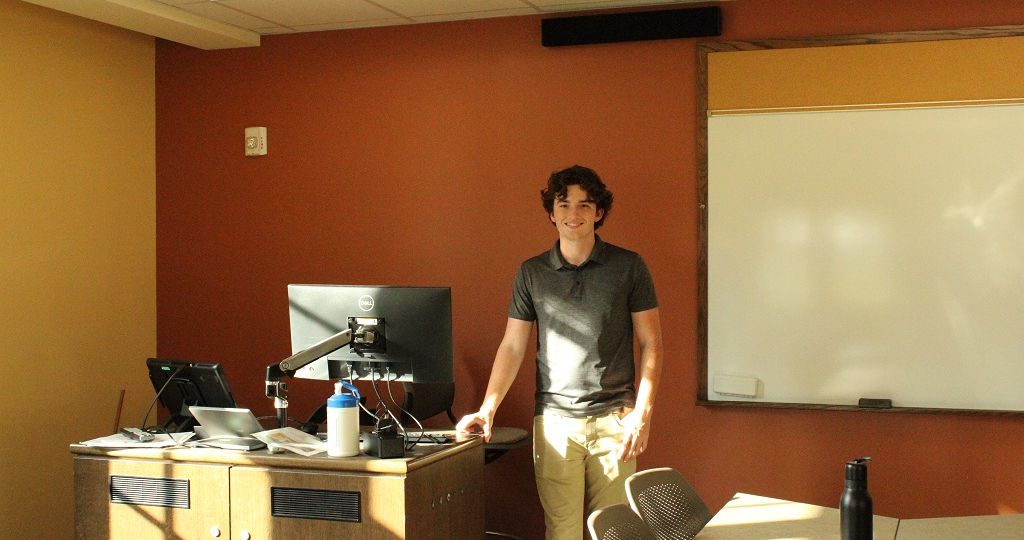
Many gaps between special education and general education can and should be filled, says Max Harris, a UND School of Graduate Studies student.
And UND can help. “The more collaboration and community-building there is, the more beneficial,” said Harris, who’s in his first year of pursuing a graduate degree in Special Education.
Despite being new to the program, Harris is already in the classroom, learning in real time how to handle the challenges that arise in special education. In this way, he’s experiencing how his UND graduate training can inform his real-life experiences as a teacher, and it’s helping to build his confidence about succeeding in the field.
Being in the classroom has taught him how not only academics but also social interactions affect children, Harris said. The two areas cannot be worked on as isolated issues but need to be combined to best support students with disabilities.
And that’s just one of the lessons he’s learned though UND’s on-campus and on-the-job experiences.
“At UND, the classes are very structured and teach you what you should know,” he said. “In contrast, when you get in the actual schools, at times it can feel like it’s not structured at all,” especially for a newcomer such as himself. “You kind of have to be creative and go with how the day is going.”
UND gives students the tools they need to succeed in the classroom, but there are some things students need to experience to understand, Harris said. That’s when internships become crucial.
Mentors play vital role
Harris’ mentor teacher, Sara McNally of the Grand Forks School District, uses a different set of lesson plans than UND teaches. This has shown him how to be flexible and adapt to students’ needs when planning lessons.
McNally is crucial as part of the learning process for him, he said. In particular, she helps him with the many things that college may not prepare him for, especially in the field of special education.
“For example, there are IEPs, different methods of standardized testing, different things that you have to do that aren’t part of a university curriculum,” he said.
“Being in person, in the classroom, it’s so beneficial to see how an actual teacher does things. Learning from actual professionals, I think, has been the most eye opening for me.”
Likewise, finding ways to help the special education students overcome various challenges has helped Harris better understand disabilities and inclusion, he said.
“My knowledge about different strategies that benefit different kids has really grown,” he said. “Obviously, there are going to be different barriers for each student, so just getting around each barrier – the classes have helped me find ways to do that.”
